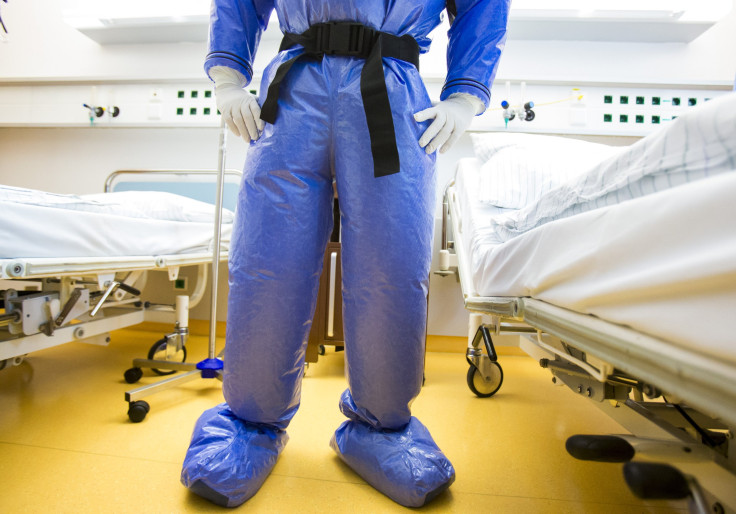New York’s Ebola Scare: Mystery Patient Speaks On What’s It Like To Be Quarantined When Doctors Think You Have Ebola

In an exclusive interview with NY Daily News, Eric Silverman, a 27-year-old Brooklyn native, recounts what it was like to be quarantined at Mount Sinai Medical Center while all the doctors and nurses surrounding him suspected he might be infected with Ebola virus. “It was surreal,” Silverman told the Daily News, summing up in a single word his 72-hour experience among the astronaut-suited health care workers. Happily, his extraordinary three days as the identity-protected "mystery patient" ended on a positive note.
Silverman’s surreal adventure began in April, when he first journeyed to Sierra Leone to participate in an agriculture and construction project expected to last four months. Stationed in the Kailahun district, located in the eastern portion of the country, cases of Ebola infection had already begun to pop up among villagers living in communities within the bush. Yet, Silverman remained healthy and unaffected, continuing to work. Mid-July, he returned to New York City to celebrate his mother’s birthday and also to take a vacation. Yet, last Sunday, during his second week home in the city, Silverman went out with his friends and found himself shivering despite the warm summer temperatures. In short order, he was suffering all the early symptoms of Ebola — high fever, sore throat, headache, and diarrhea.
When his mother informed the family doctor, she quickly gathered all the necessary information and directed him to the hospital, no stopping — after all, Silverman’s suspiciously Ebola-like symptoms were occurring within the 21-day incubation period. When he arrived, hospital staff greeted him at the door in space suits and immediately isolated him. Let it be known they took care to incinerate even his underwear. Meanwhile, back at his mother’s house, public health officials had closed off his room, and family members were warned against visiting him at the hospital. Quarantine had gone into effect.
As is well known among medical professionals, isolation and quarantine are tools frequently used to stop or limit the spread of disease. In some cases, patients already suffering with a communicable disease are isolated from those who are healthy. At the same time, quarantine may be employed to separate well people who may have been exposed to a communicable disease as doctors wait to see if they become ill.
Silverman, then, lay in a hospital bed hooked up to monitors while tests were run and doctors and nurses anxiously awaited the results. Though hospital staff were intensely worried on behalf of this patient they described as a 'model,' laid-back Silverman himself was somewhat less concerned. “I started to think about who I had been with in Sierra Leone in the last week I was there,” he told the Daily News. “But I couldn’t think of anyone who was that sick who could have given me the disease. I hadn’t been exposed, as far as I knew.” However, his relief was real when doctors finally entered his room not wearing protective gear and told him his test results were negative.
All’s well that ends well… at least for now. Is it likely someone here in America will have a similar adventure as Silverman, minus the happy ending? “The situation in Africa does not appear to be under control, and it’s so easy to travel from place to place,” Dr. Charles Powell, chief of pulmonary and critical care medicine for the Mount Sinai Health system, told the Daily News. For this reason, he believes it could happen that America sees at least a patient or two. A silver lining exists, though. “As a result of this episode, all the health care institutions in New York are going to be well prepared to recognize [Ebola] early and assemble the procedures to care for these patients.”
The same might be said of the country as a whole. According to the Centers for Disease Control and Prevention, a total of 20 quarantine stations are set up and ready to be used if necessary. The comprehensive quarantine system would both limit the introduction of infectious diseases into the U.S. while also preventing their spread.



























